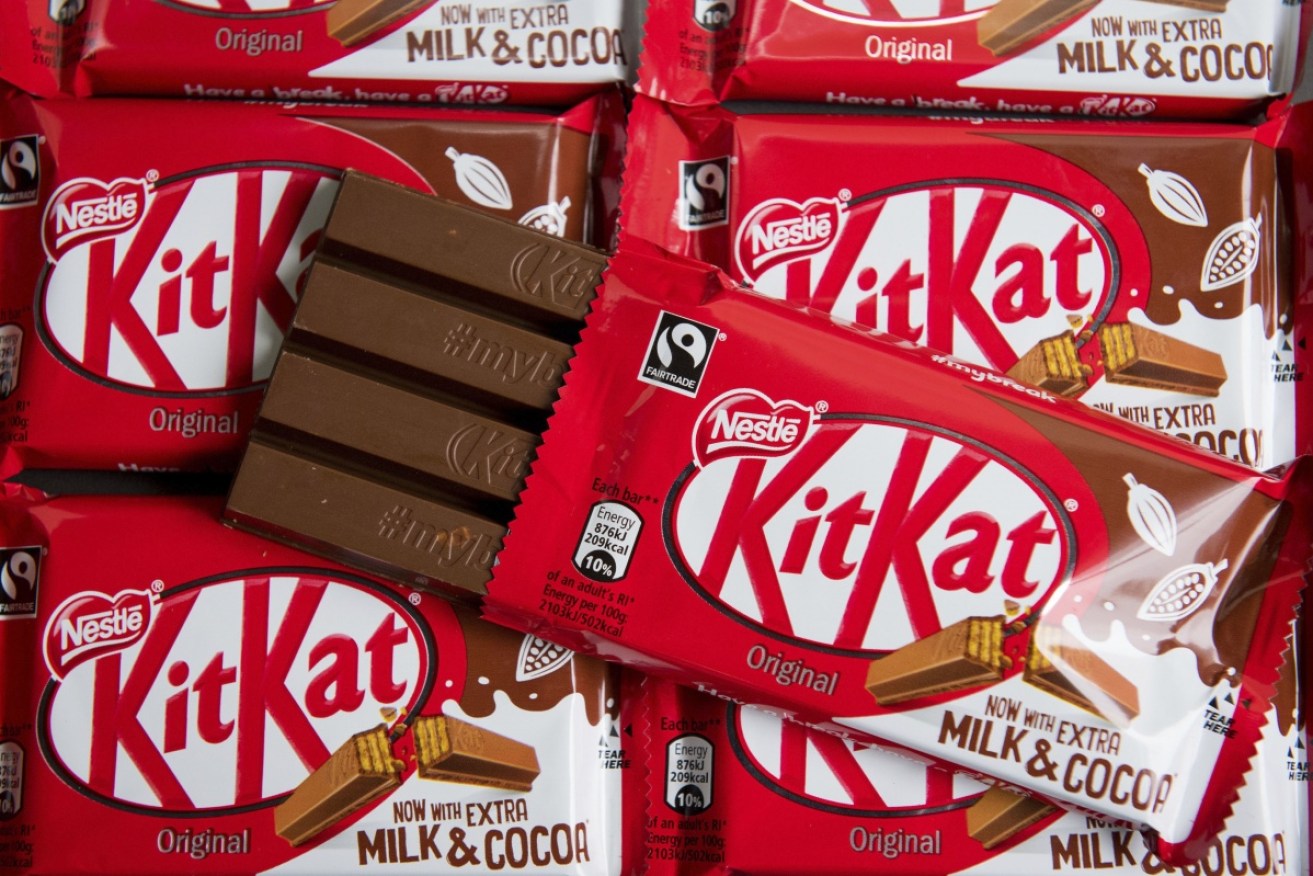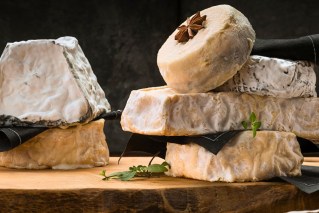Nestle loses bid to trademark KitKat’s ‘four finger’ shape


Nestle has been battling Canbury to trademark the chocolate wafer for years. Photo: AAP
Nestle has lost its legal bid to trademark the shape of its famous four-fingered KitKat bar, with judges ruling it is not distinctive enough to warrant protection.
The Court of Appeal in London’s ruling comes as the latest twist in Nestle’s decade-long battle with rival Cabury to register the chocolate wafer biscuit.
After months of deliberation, three appeals judges ruled on Wednesday that the KitKat bar’s shape was not unique and no “badge of origin”.
“We are concerned here with … the three-dimensional shape of a chocolate product, that has no inherent distinctiveness,” Lord Justice Kitchin said.
Nestle has tried to trademark the four-fingered chocolate bar since 2010, but its attempts were repeatedly opposed by Cadbury, which raised its latest objection in the UK Court of Appeal.
KitKat has remained relatively unchanged since its creation in 1935 by Rowntree’s Chocolate Crisp – before Nestle took ownership in 1988.
And while the word KitKat, its red packaging and the slogan “Have a Break” are already trademarked, the shape of the bar itself is not.

The Norwegian chocolate bar standing in Nestle’s way. Photo: Amazon
The Daily Milk confectioner argues Nestle’s product is not one-of-a-kind with the existence of a similar Norwegian bar, called Kvikk Lunsj.
The bar, which stands for “quick lunch” launched in 1937 and is owned by Cadbury’s parent company, Mondelez.
But despite Nestle’s defeat, the company is weighing its options whether it will try take the case to the UK supreme court.
“Nestle is disappointed by the Court of Appeal judgment and is considering next steps,” a spokesperson told BBC.
“KitKat is much loved around the world and its four-finger shape is well known by consumers.
“Nestlé’s four-finger shape has been granted trademark registration in many countries of the world, for instance Germany, France, Australia, South Africa and Canada, further protecting it from imitations.”
The appeal judges determined that while the four-finger shape might be “very well known” with KitKat, “that does not necessarily mean that the public have come to perceive the shape as a badge of origin such that they would rely upon it alone to identify the product as coming from a particular source”.
“They might simply regard the shape as a characteristic of products of that kind or they might find it brings to mind the product and brand name with which they have become familiar,” Lord Justice Kitchin said.
“These kinds of recognition and association do not amount to distinctiveness for trademark purposes.”
Cadbury has previously had its own registration to trademark thwarted by Nestle, after it tried to copyright its shade of purple in 2013.
“As we have previously stated, we do not believe the shape of the KitKat bar should be protected as a trademark in the UK,” a Mondelez spokesperson said.








